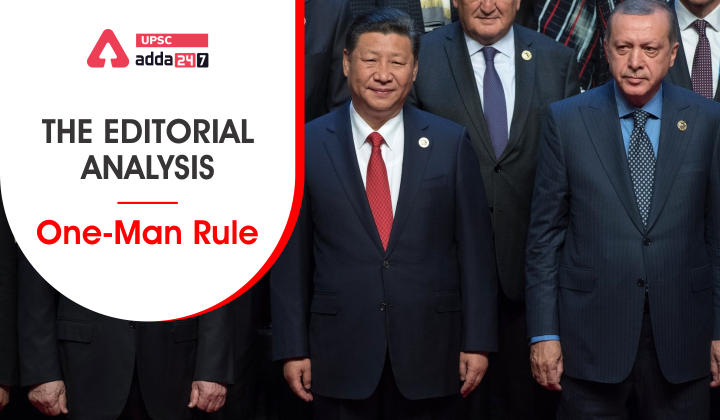Table of Contents
New Tunisian Constitution- Relevance for UPSC Exam
- GS Paper 2: International Relations- Bilateral, regional and global groupings and agreements involving India and/or affecting India’s interests.
New Tunisian Constitution in News
- Recently, Tunisian voters with a 94% majority backed a new Constitution that would see the return of a strong presidency.
- This ends the Tunisia’s brief experiment with post-revolutionary parliamentary democracy.
Background of New Tunisian Constitution
- President Kais Saied sacked the elected government of Prime Minister Hichem Mechichi and suspended and then dissolved Parliament last year.
- President Kais Saied has been pushing for constitutional changes that would institutionalise his one-man rule.
- Over the past year, Mr. Saied has ruled the country through decrees, awarding himself more powers.
- He has fired many judges, seized independent institutions such as the election commission and sidelined political parties, including the Ennahda, the Islamist party which had the most number of elected representatives in the dissolved Parliament.
- When Tunisia fell into political instability amid a worsening economic and COVID-triggered healthcare crisis, Mr. Saied found an opportunity to expand his authority.
- He blamed the country’s parliamentary system and the infighting among the political class for the problems Tunisia faced.
- His move to suspend parliamentary democracy was relatively popular at that time.
Impact of President Kais Saied’s Rule on Tunisia
- Tunisia has seen little progress under Mr. Saied’s direct rule. His popularity has fallen from 82% last summer to 59% in April this year.
- The country’s economy grew 2.9% in 2021, after a 9.2% contraction in the previous year. Unemployment is 16% and inflation, 8.1%.
- Faced with a growing fiscal deficit and a current account shortfall, the government is negotiating with the IMF for a $4 billion loan.
New Tunisian Constitution Referendum- Features
- It awards President Kais Saied ultimate authority to form governments, name Ministers, appoint judges and even present laws.
- With this, Mr. Saied is set to rule Tunisia with unchecked powers.
- Saied, who also claims to represent the spirit of the 2011 revolution, has effectively taken the North African country back to absolute presidency, which could slip into constitutional authoritarianism.
- Despite the regime’s high-decibel propaganda, only 30% registered voters turned up at polling stations as most political parties had called for a boycott.
- This shows the growing public discontent was visible in the referendum.
New Tunisian Constitution- Conclusion
- Saied may have clinched a victory with the ‘yes’ vote, but with mounting economic ills, an alienated opposition and growing discontent among the public, he will find it difficult to steer Tunisia.
9th Edition of International Labour Organisation (ILO) Monitor Report
9th Edition of International Labour Organisation (ILO) Monitor Report




 TSPSC Group 1 Question Paper 2024, Downl...
TSPSC Group 1 Question Paper 2024, Downl...
 TSPSC Group 1 Answer key 2024 Out, Downl...
TSPSC Group 1 Answer key 2024 Out, Downl...
 UPSC Prelims 2024 Question Paper, Downlo...
UPSC Prelims 2024 Question Paper, Downlo...




